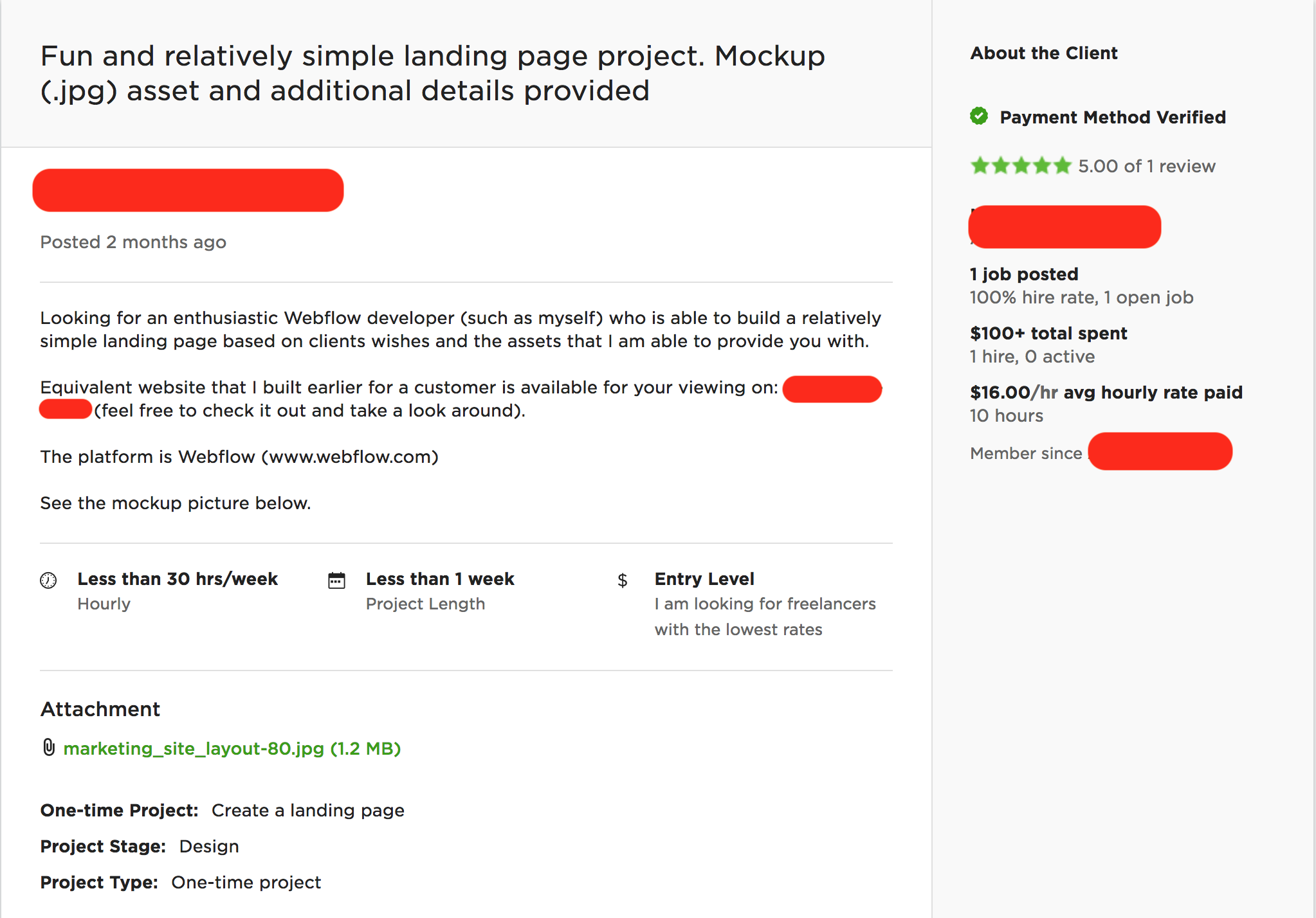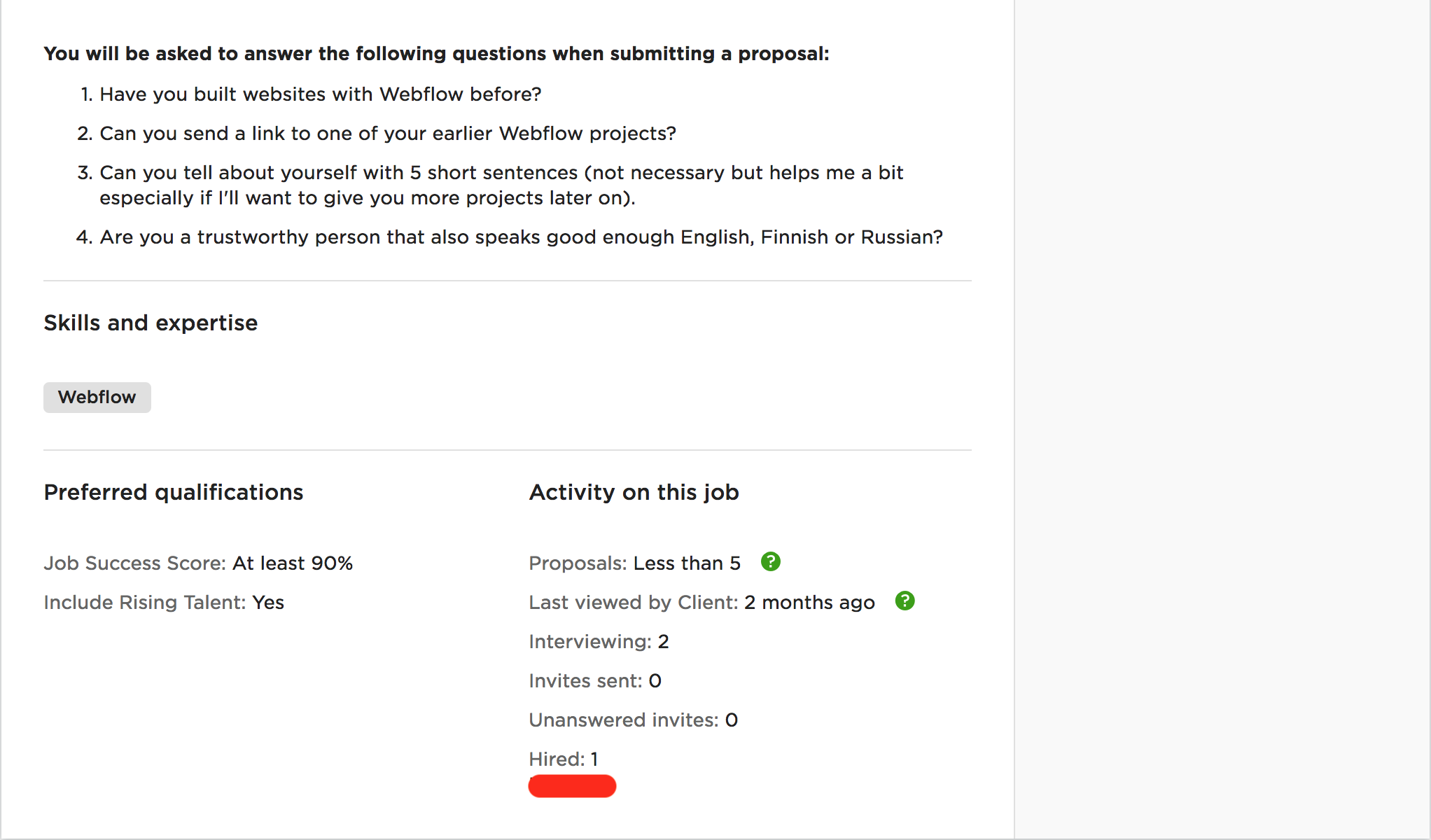Many people that I've come across have thought of hiring a freelancer but do not know exactly where to start. Some worry about the possible complications of trusting their work to somebody else while others keep pondering whether they should hire at all in the first place.
I've always enjoyed working with people on an international level but an additional factor may, of course, be that I've been a freelancer myself thus giving me an awful lot of perspective into hiring someone to work for my cause.
I have to admit that I also had doubts when hiring outsiders for the first time, but after each and every case being successful ever since, I can recommend it after a few careful considerations.
Why use a freelancer?
I use freelancers almost exclusively for:
- Small creative work
- Coaching when trying to learn something myself
- Fixing small issues, bugs or problems that require particular deep expertise
4. And most importantly: In order to gain efficiencies with larger projects
Here I would like to focus on the last point.
My observation has been that the project will be smooth when hiring a freelancer for a project that you could do yourself. Hiring someone to save you time while letting you focus on more important things is the main reason for me to use freelancers overall.
Yes, it's that simple: You are setting yourself for success when hiring someone for a job that you know how to do yourself.
Things to take into account
- Assume that everything is on your own responsibility and if something goes wrong there is no-one else to blame but yourself
- Treat others in a way that you would like to be treated yourself, no matter how much you are ready to pay, lots or very little
- If you work with your own clients, consider many times over if it is a good idea to connect your freelancer with the end customer. Stay as the main point of all communication
- It is of great value if you can derive rough financial estimations and evaluate your project in advance based on your previous experience. Otherwise at least think of what is the maximum amount that you are willing to spend and remember to include some extra contingencies if something goes wrong.
Freelancer platforms of choice
Fiverr - A great and easy to use platform for small jobs like logos, graphics work, translations and other forms of content production.
Airtasker - If you need to outsource some of the smaller everyday tasks more locally, Airtasker is a rapidly growing platform which lets you do just that. They are very prominent in Australia, and I hope to see such platforms expand further also here in Europe.
Freelancer - Solid platform for a variety of different projects. I've heard lots of good experiences from its users but haven't used this platform myself.
UpWork - The freelancer juggernaut of the internet, former Elance is the platform of choice for me and many others. It is suitable for even the very extensive projects and has all of the features you'd expect for handling things with ease. What surprised me the most is that it allows you to hire whole teams of freelancers and it even has its own video conferencing solution built right in.
The benefit of using established platforms as compared to finding freelancers on your own is that you will be significantly less susceptible to fraudulent and dishonest activity. These platforms also often keep money safe in escrow for a reviewing period and act as trustable middlemen for transactions.
Of course, the bad part of using well-known freelancer marketplaces are the transaction fees. Myself I haven't found them to be very high as compared to the convenience that I've received from them.
Posting a job and choosing the hire
Below is my recent job posting on UpWork for a relatively simple project:


I would like to point out from these screenshots that the initial stages do not necessarily require a lot of information. I did additionally post a visual mockup of the desired end goal in order to let the freelancers better assess the amount of work required.
Before letting freelancers submit an offer, I asked them a couple of questions as well as requested relevant references to help me shortlist best people for the job.
In a short amount of time (within 1,5 days from posting) I had three freelancers with various rates offering their help with the project, one from Brazil, a great guy from the United States and someone from Armenia who is now a trusted freelancer of mine.
UpWork let me have a round of interviews and after exchanging a couple of questions with each submitter I chose my preferred freelancer and thanked the other two for participating. I also ensured that I keep the window open for future cooperation with others as it is always a good idea to have a Plan B.
Onboarding and setting the framework
After picking what seems like the right person for the job it is a good idea to set up and prepare for a comprehensive initial onboarding meeting.
- Be nice and get to know your hire a little bit more
- Set the expectations and tell about the project at hand in a bit more detail
- Ensure that your freelancer understands the timelines and ask their opinions on it
- Ask if the hire sees any obstacles or significant risks with the project from their side as well as yours (they usually have lots of experience themselves)
- Make sure that your freelancer has all of the materials and source information to be effective at his/her work
- Agree on the frequency of communication and tell a bit more about the end client who receives the work if there is one
I always like to give to freelancers a generous permission to solve the problems in their own way and use their own artistic freedom where they see fit. As a result, I receive a motivated hire who usually completes the job with utmost care.
I trust my hires from the very beginning. My assumption is that they do their best and provide the most stellar input by default.
Constant feedback loop
We do not live in a perfect world. Things don't always go as planned and sometimes the work may come out to be subpar.
In order to avoid this a rapid feedback loop, as well as constant iteration, is of great importance. As requirements also often change, the constant communication cannot be overstated. Do not expect to receive a complete project after a single onboarding meeting and prepare additionally for consecutive improvement rounds even after the initial goal has been reached.
Openness and effective collaboration can and often is put to the test in more complex projects.
Closing the project & reviews
After the project has been delivered I like to conclude with a recap, closing discussion and a big thank you to all of the parties that have been involved, be it together or separately. Usually, this involves also the send out of possible outstanding bills to the end client and discussions about the possibilities for further cooperation.
It is extremely important to end the project with your freelancer on a good note as in the end it will be you both helping each other by leaving good reviews, especially if the job was conducted via one of the larger platforms.
Below is a review that the freelancer left to me on UpWork - a success.

Do you have experience of working with freelancers? Do you have additional things to share? I invite you to leave a comment below.

